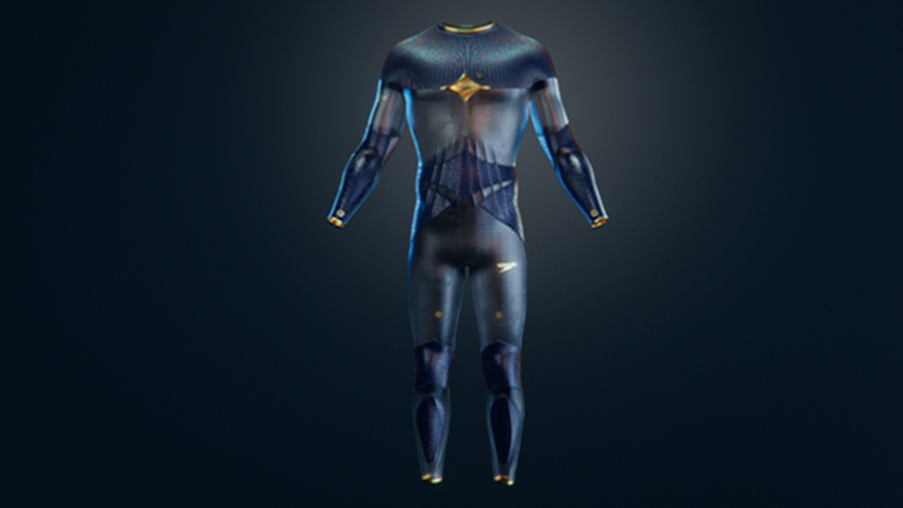This high-tech swimsuit boosts speed by replicating the texture of a whale's belly

Sign up for breaking news, reviews, opinion, top tech deals, and more.
You are now subscribed
Your newsletter sign-up was successful
Speedo has revealed an 'intelligent' swimsuit that's custom 3D-printed for the wearer, and uses customizable compression, adaptive buoyancy, and even textures inspired by the underbelly of a whale to help improve times in the water.
The Fastskin 4.0 is only a concept for now (and a pretty outlandish one at that), but some of its individual design components could definitely become part of competition swimwear in the future.
- We've tested and ranked the best waterproof headphones
- We've also rounded up the best swimming watches
- Are Fitbits waterproof? We run through the entire range
Some of the suit's more extreme features include AI to monitor athletes' vital statistics and provide coaching mid-race, plus an exoskeleton to enhance muscular power in the pool.
Speedo suggests that together, the suit's technologies could help the men's freestyle record break the 20 second barrier, and the women's 100m breaststroke time drop below 60 seconds.
Taking the plunge
That isn't likely to happen at this year's Tokyo Olympics, though. The rules for Olympic level swimwear are pretty strict. For pool swimming at temperatures above 18C, swimsuits for men must not extend above the navel or below the knee, and women's suits must not cover the neck, or go past the shoulder or knee. The material must be 'regular and flat' (which might rule out whale bellies) and must not have a buoyancy effect above 0.5 Newtons.
Exoskeletons aren't mentioned specifically, but it seems safe to say that they wouldn't get the seal of approval, either.
However, custom 3D printing is a definite possibility for competitive swimwear, as is the use of recycled material. The Olympic Games has been making a push for sustainability in recent years; medals for the Tokyo Games have been made using scrap smartphones, and Asics released a line of official sportswear for the Games that includes running shoes made from tons of waste clothing gathered in Japan.
Sign up for breaking news, reviews, opinion, top tech deals, and more.
For the time being, Speedo's LZR Pure Intent and LZR Pure Valor racing swimsuits do offer one feature from the Fastskin 4.0: fabric based on research into shark scales. The suits are due to be worn by some of the world's best swimmers at the Tokyo Olympics, so perhaps the whale belly idea isn't so far fetched after all.
- We've tested and ranked the best fitness trackers available today

Cat is TechRadar's Homes Editor specializing in kitchen appliances and smart home technology. She's been a tech journalist for 15 years, having worked on print magazines including PC Plus and PC Format, and is a Speciality Coffee Association (SCA) certified barista. Whether you want to invest in some smart lights or pick up a new espresso machine, she's the right person to help.